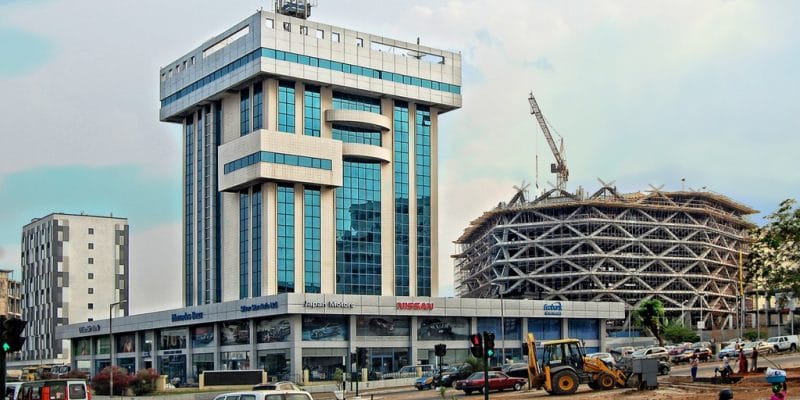A joint report by the African Development Bank (AfDB) and the Global Centre for Adaptation (GCA) in Ghana predicts economic losses of up to US$4 billion in the transport sector if nothing is done to counter the effects of climate change. The study proposes a resilience plan that adapts to several levels of economic development including the provision of green infrastructure by 2050.
Ghana has experienced severe droughts and floods over the past two decades with a proven impact on several sectors including transport. Faced with climate hazards that suggest losses of nearly 4 billion dollars in road, rail and maritime traffic in this West African country, the African Development Bank (AfDB) proposes in a recent report, a resilience strategy based on the establishment of green infrastructure by 2050.
The study was conducted in partnership with the Global Centre for Adaptation (GCA), an international organisation created in 2017 following the 23rd Conference of the Parties (COP 23) on climate change in the city of Bonn, Germany. The United Nations Environment Programme (UNEP) and the Environmental Change Institute at Oxford University in England also participated in this research.
Impact in other sectors
The report says the effects of climate change, particularly on river flows, are likely to affect 1.3 million Ghanaians, including women and children who depend on their activities. “Extreme weather and rapid climate change in Ghana pose a profound risk to infrastructure in key sectors of the country’s economic growth and development,” said Kwaku Afriyie, Ghana’s Minister of Science, Environment, Technology and Innovation.
According to the study, climate hazards are jeopardising the future availability of energy for 250,000 people in rural Ghana, due to the dependence of households on fuelwood. In this context, the risks of floods and droughts are affecting the production and distribution of electricity.
Read also-GHANA: GCF and Hatof train civil society on climate issues
To address these challenges to Ghana’s infrastructure, particularly in the energy, transport and water sectors, the AfDB and its partners are suggesting 35 adaptation options to local donors and investors.
An adaptation plan
According to Professor Patrick Verkooijen, Director General of the Global Centre for Adaptation, the aim is to make green mobility projects and nature-based solutions viable. Also, the adaptation strategy is to strengthen the institutional interventions already in place in Ghana.
“The impacts of climate change are expected to lead to increased investment in infrastructure, particularly in water storage, flood protection, water supply and sanitation, but in the long term, investment in adaptation will reduce the need for costly retrofitting while reducing upfront costs,” says Anthony Nyong, regional director for Africa at the Global Centre for Adaptation.
Benoit-Ivan Wansi





